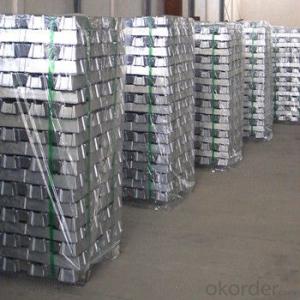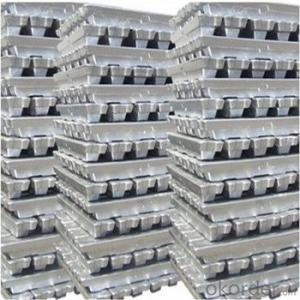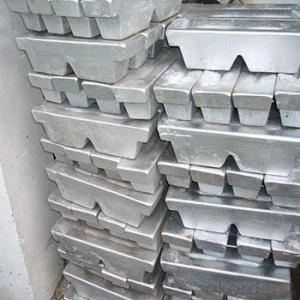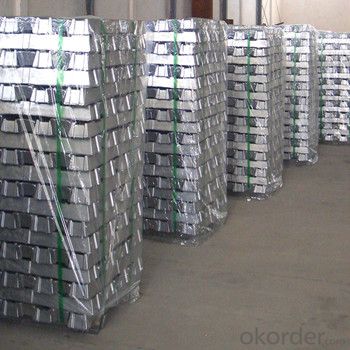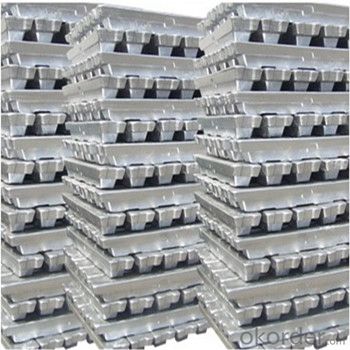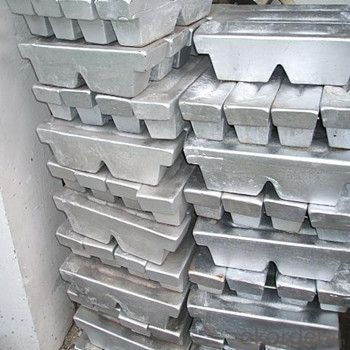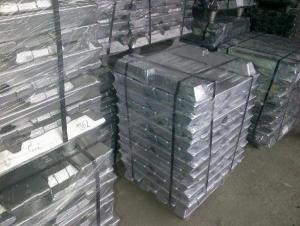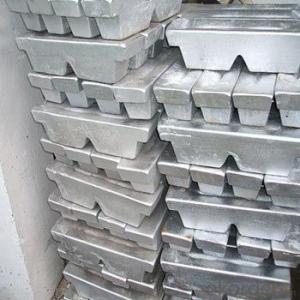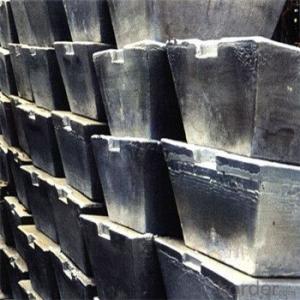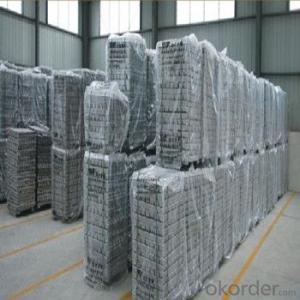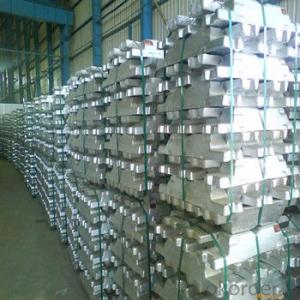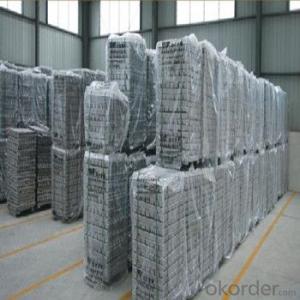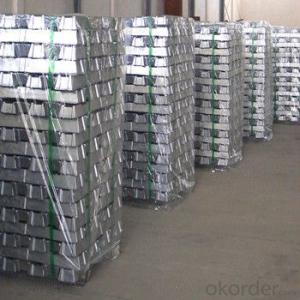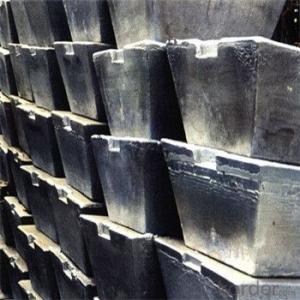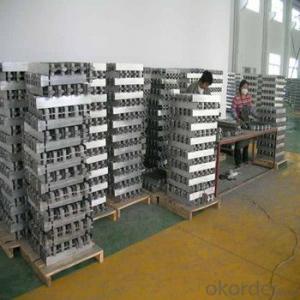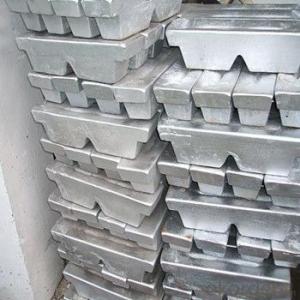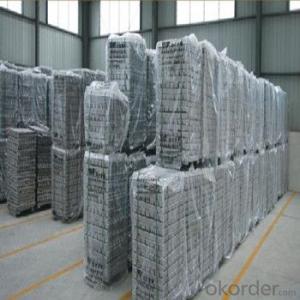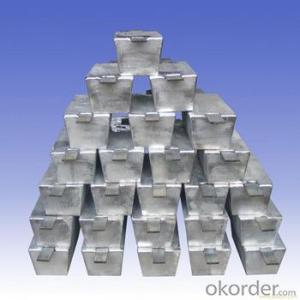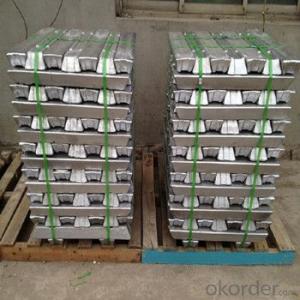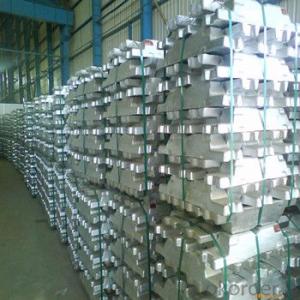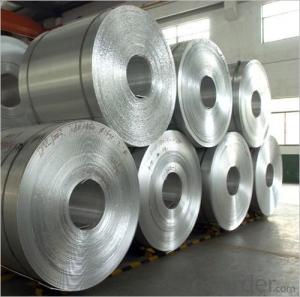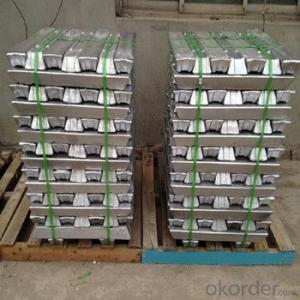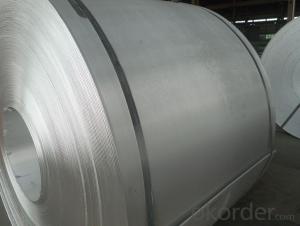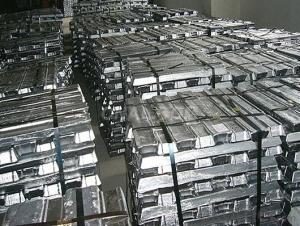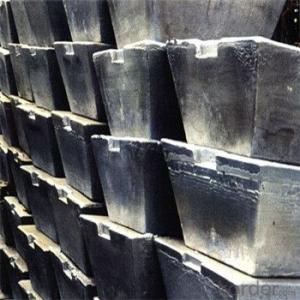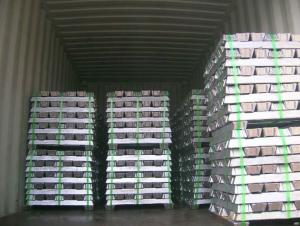Aluminum Pig/Ingot With Wholesale Price From Mill
- Loading Port:
- China main port
- Payment Terms:
- TT OR LC
- Min Order Qty:
- 1000 m.t.
- Supply Capability:
- 100000 m.t./month
OKorder Service Pledge
OKorder Financial Service
You Might Also Like
Pure Aluminum Pig/Ingot Used for Industry
1.Structure of Aluminum Pig/Ingot
A material that has been cast into a shape in order to be transported and processed easier than in an unprocessed form. An ingot is typically rectangular in shape, which allows it to be stacked. Ingots are most commonly associated with metals, with ingots of gold held in the vaults of banks and brokerages being popular images.
Aluminum Ingot is with the AL as the main chemical composition.Aluminum Ingot is used for industry,such as automobile,pinning and weaving,electron broadly and so on. Aluminum Ingot has the following advantages: easy control and operation, fast melting.
2.Main Features of the Aluminum Pig/Ingot
•High Purity
•Easy control and operation
•High strength
•Fast melting
•Competitive price
•Best Service
3.Aluminum Pig/Ingot Images
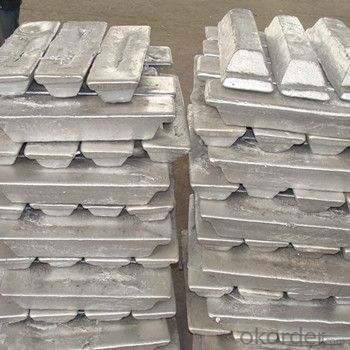
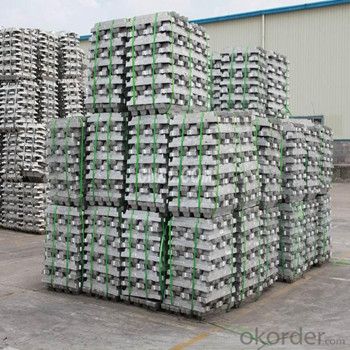
4.Aluminum Pig/Ingot Specification
Grade | Chemical Composition % | |||||||||
Al≥ | impurities ≤ | |||||||||
Si | Fe | Cu | Ga | Mg | Zn | Mn | others | Sum | ||
Al99.9 | 99.90 | 0.50 | 0.07 | 0.005 | 0.02 | 0.01 | 0.025 | - | 0.010 | 0.10 |
Al99.85 | 99.85 | 0.80 | 0.12 | 0.005 | 0.03 | 0.02 | 0.030 | - | 0.015 | 0.15 |
Al99.7 | 99.70 | 0.10 | 0.20 | 0.010 | 0.03 | 0.02 | 0.030 | - | 0.030 | 0.30 |
Al99.6 | 99.60 | 0.16 | 0.25 | 0.010 | 0.03 | 0.03 | 0.030 | - | 0.030 | 0.40 |
Al99.5 | 99.50 | 0.22 | 0.30 | 0.020 | 0.03 | 0.05 | 0.050 | - | 0.030 | 0.50 |
Al99.00 | 99.00 | 0.42 | 0.50 | 0.020 | 0.03 | 0.05 | 0.050 | - | 0.050 | 1.00 |
5.FAQ of Aluminum Pig/Ingot
We have organized several common questions for our clients,may help you sincerely:
①How about your company?
A big and famous and professional manufacturer & supplier of Aluminum Pig/Ingot, is one of the one of the large-scale professional investment Aluminum Pig/Ingot production bases in China.It have focuses on producing the Aluminum Pig/Ingot production for many years and gotten rich experience.Annually lagrge amount of Aluminum Pig/Ingot production are exported to markets in Europe,America and Japan. The quality and service have also gotten OEM service is available according to customer’s requirements.
②How to guarantee the quality of the products?
We have established the international advanced quality management system,every link from raw material to final product we have strict quality test;We resolutely put an end to unqualified products flowing into the market. At the same time, we will provide necessary follow-up service assurance.
③How long can we receive the product after purchase?
In the purchase of product within three wo We have organized several common questions for our clients,may help you sincerely:
①How about your company?
A big and famous and professional manufacturer & supplier of Aluminum Pig/Ingot, is one of the one of the large-scale professional investment Aluminum Pig/Ingot production bases in China.It have focuses on producing the Aluminum Pig/Ingot production for many years and gotten rich experience.Annually lagrge amount of Aluminum Pig/Ingot production are exported to markets in Europe,America and Japan. The quality and service have also gotten OEM service is available according to customer’s requirements.
②How to guarantee the quality of the products?
We have established the international advanced quality management system,every link from raw material to final product we have strict quality test;We resolutely put an end to unqualified products flowing into the market. At the same time, we will provide necessary follow-up service assurance.
③How long can we receive the prod rking days, We will arrange the factory delivery as soon as possible. The pecific time of receiving is related to the state and position of customers.Commonly 7 to 10 working days can be served.
- Q: How much capital do I need to invest in the recycled aluminium ingot?
- Interests can also, but you have to look at how solid ingots sell, I mainly sell coal and carbon to the factory with multiple points of contact, but you want me to say how much the solid would ask how.
- Q: How are aluminum ingots used in electrical wiring?
- Aluminum ingots are used in electrical wiring as a raw material for manufacturing aluminum wires and cables. These ingots are melted down and then processed to form long, thin wires that are used for conducting electricity in various applications such as residential, commercial, and industrial buildings. Aluminum wiring is preferred for its high conductivity, lightweight nature, and cost-effectiveness, making it a suitable choice for transmitting electrical currents efficiently.
- Q: How much does it cost to process the aluminum ingots into T5-6063 models? Now, what about costing the aluminum ingot or the aluminum bar?
- 6063 is the alloy brand, T5 by the high temperature forming process cooling, and then the artificial aging stateThe utility model is suitable for artificial aging products after being cooled by the high temperature forming process without being cold processed (which can be straightened and straightened without affecting the mechanical performance limit)
- Q: How are aluminum ingots protected from corrosion?
- There are several methods available to protect aluminum ingots from corrosion. One of these is applying a protective coating or film to the surface of the ingots. This coating acts as a barrier, preventing direct contact between the aluminum and the environment and reducing the risk of corrosion. Coatings can include paint, lacquer, or specialized epoxy coatings. Another method is anodization, which involves an electrochemical process that creates a thick oxide layer on the ingots' surface. This oxide layer not only improves the appearance of the ingots but also provides a strong defense against corrosion. Anodization can be done using different techniques, such as sulfuric acid anodizing or chromic acid anodizing, depending on the desired level of protection. In addition, proper storage and handling practices are crucial in protecting aluminum ingots from corrosion. It is important to store the ingots in a dry and well-ventilated area to minimize moisture exposure. They should also be stacked and stored in a way that allows air circulation to prevent the formation of stagnant water or condensation. Regular inspections and maintenance are necessary to detect any signs of corrosion early on and take appropriate action to address it. To sum up, protecting aluminum ingots from corrosion requires a combination of protective coatings, anodization, and proper storage and handling practices. By implementing these measures, the durability and quality of aluminum ingots can be preserved, ensuring their suitability for various applications.
- Q: How can the aluminum factory calculate the cost better?
- Cost of aluminum material = raw material price (futures aluminium ingot price) company's processing fee.
- Q: Can aluminum ingots be customized for specific applications?
- Certainly, specific applications can have customized aluminum ingots. Aluminum, a remarkably adaptable metal, can be effortlessly shaped to fulfill diverse needs. Typically, the customization procedure includes combining the aluminum with other elements to amplify qualities like strength, hardness, resistance to corrosion, and thermal conductivity. Furthermore, the ingots can undergo various heat treatment methods such as annealing, quenching, and tempering to further adjust their properties. Consequently, aluminum ingots that are precisely designed for particular applications can be manufactured, encompassing a wide range from automotive parts and aerospace components to construction materials and consumer products.
- Q: How to cast aluminum ingots
- The cast aluminum heating to 800 DEG C, then slag, into the mold.
- Q: What are the main factors influencing the choice between aluminum ingots and aluminum castings?
- The main factors influencing the choice between aluminum ingots and aluminum castings are the desired shape and complexity of the final product, manufacturing process efficiency, cost considerations, and the mechanical properties required for the application.
- Q: What are the challenges in recycling aluminum ingots?
- One of the challenges in recycling aluminum ingots is the energy-intensive process required to melt and extract aluminum from the ingots. Additionally, impurities such as coatings, paints, or other contaminants on the ingots can hinder the recycling process and require additional steps for purification. Furthermore, the collection and sorting of aluminum ingots from various sources can be logistically complex and time-consuming. Lastly, ensuring a consistent supply of high-quality aluminum ingots for recycling can be challenging, as it depends on factors like consumer behavior, recycling infrastructure, and market demand.
- Q: How are aluminum ingots used in the production of heat sinks?
- Aluminum ingots are melted down and then cast into specific shapes and sizes to create heat sinks. These heat sinks are then used in various electronic devices to dissipate heat and cool down the components, ensuring their optimal performance and longevity.
Send your message to us
Aluminum Pig/Ingot With Wholesale Price From Mill
- Loading Port:
- China main port
- Payment Terms:
- TT OR LC
- Min Order Qty:
- 1000 m.t.
- Supply Capability:
- 100000 m.t./month
OKorder Service Pledge
OKorder Financial Service
Similar products
Hot products
Hot Searches
